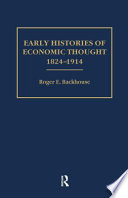 | Karl Marx, Lawrence H. Simon - Philosophy - 1994 - 388 pages
...is a physiological fact that they are functions of the human organism, and that each such function, always lay down the same portion of his ease, his liberty, and his happiness' (Wealth of Nations, Bk I, Ch. 5 [pp. 104-5]). On the one hand, Adam Smith here (but not everywhere)... | |
 | James Maitland Earl of Lauderdale - Business & Economics - 1996 - 184 pages
...commodities. Equal quantities of labour must at all times and places be of equal value to the labourer. He must always lay down the same portion of his ease, his liberty, and his happiness.** . . . Labour alone therefore, never varying in its own value,*** is alone the ultimate and real standard... | |
 | Werner Stark - Business & Economics - 1998 - 96 pages
...subjective disutility of labour are harmoniously combined in this conception. " Equal quantities of labour, at all times and places, may be said to be of equal...portion of his ease, his liberty, and his happiness" (ibid.). Hence it is but "natural that what is usually the produce of two days or two hours of labour,... | |
 | Roberto Marchionatti - Business & Economics - 1998 - 496 pages
...Smith writes: "Equal quantities of labor must at all times and places be of equal value to the laborer. In his ordinary state of health, strength, and spirits;...the same portion of his ease, his liberty, and his happiness."24 If labor regarded as "trouble" be the basis of our personal estimate of value, then the... | |
 | Daniel Brudney - Philosophy - 1998 - 460 pages
...passage from Smith and attacks him on the ground that, for Smith, labor is a curse: "That the individual, 'in his ordinary state of health, strength and spirits;...in the ordinary degree of his skill and dexterity' also needs a normal portion of work, and of the suspension of rest seems quite far from Smith's mind"... | |
 | Gunnar Myrdal - Business & Economics - 1998 - 270 pages
...particular occupation.' Mill, Principles, ed. Ashley, 1909, p. 22. 26. 'Equal quantities of labour at all times and places, may be said to be of equal value to the labourer. . . . Labour alone, therefore, never varying in its own value, is alone the ultimate and real standard... | |
 | Walter A. Weisskopf - Medical - 1955 - 276 pages
...absolute, identifiable, precise magnitude. It is a stable quantity because equal quantities of labour, at all times and places, may be said to be of equal value to the labourer. . . . He must always lay down the same portion of his ease, his liberty and his happiness. The price... | |
 | Business & Economics - 2000 - 456 pages
...same sense throughout his reasoning on this subject. When he says that " Equal quantities of labour at all times and places may be said to be of equal...the same portion of his ease, his liberty, and his happiness,"2 — it is clearly not value in exchange that is meant, but value in use ; and, according... | |
 | Business & Economics - 2000 - 724 pages
...suitable, so Smith resorts to labor again, this time as a measure. Under ordinary conditions the laborer " must always lay down the same portion of his ease, his liberty, and his happiness." He may receive more or less goods, but the price he pays in labor is the same: their value varies,... | |
 | Roger Backhouse - Business & Economics - 2000 - 482 pages
...value can never be an accurate measure of the value of other commodities. Equal Quantities of Labour, at all times and places, may be said to be of equal value to the 94 On the Nature and History of Economics [BK. I. labourer. In his ordinary state of health, strength,... | |
| |